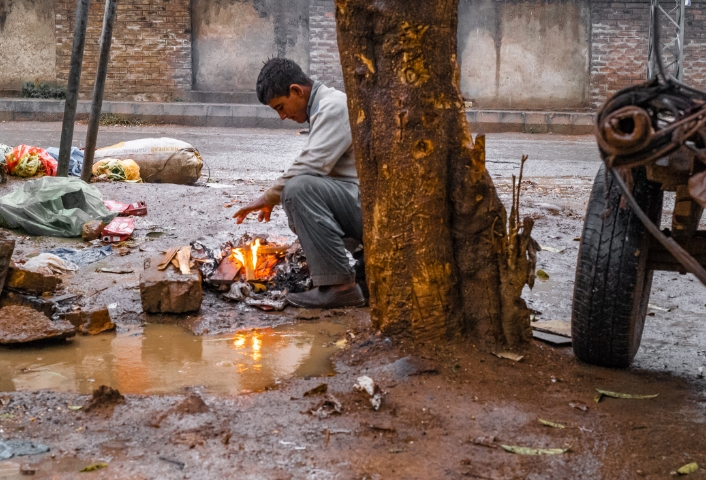The Issue
For vulnerable communities, the hardships of winter can mean the difference between life and death. Even in normal times, bitterly cold weather, darkness and food scarcity can wield catastrophic consequences – but as of 2020, the global Covid-19 pandemic has made things so much worse.
Both in the UK and in Pakistan, the economic and social fall-out caused by coronavirus has left already at-risk groups facing a long and potentially devastating season. Millions of families in both nations are set to go hungry, while facing the stark but brutal choice between food, fuel or heating. With unpaid bills mounting up amid surging unemployment, the months ahead show little prospect of relief.
In Pakistan, where winter temperatures regularly fall to sub-zero, an estimated 40% of the country’s 200 million population is expected to fall under the poverty line due to Covid-19, while almost half of all children are said to be at risk of malnutrition. Simultaneously, approximately 20 million people are lacking adequate housing. Meanwhile, here in the UK, the impact of two national lockdowns has taken a serious toll on the most vulnerable. There have been over 28,000 excess winter deaths in the past year, with approximately 8.4 million people living in food poverty in the UK. An additional 690,000 people are said to have fallen into poverty this winter than in previous years, while escalating unemployment means many are trapped in overcrowded homes they can no longer afford to heat.
Our Response
Our emergency winter appeal will target those most in need in both countries.
In Pakistan, our specially-designed Winter Survival
Kit will be distributed to hundreds of families, each providing support for up to eight people. The kits include vital provisions for surviving the bleak months ahead, including winter clothing – such as gloves, woollen caps and sweaters. Quilts and warm bedding will also be provided, as well as cooking stoves and utensils, plus gas cylinders to power them. In addition, the kits will be supplemented with essential food supplies – such as oil, vegetables and meat, alongside other food products that maintain a long shelf life.
In the UK, our appeal will focus on alleviating food and fuel poverty for those who have been most harshly impacted by the Covid-19 outbreak. We will provide essential supplies and meals for thousands, and also support the elderly so that they do not have to choose between eating and heating this winter. In addition,
we will provide much-needed shelter for the homeless.




